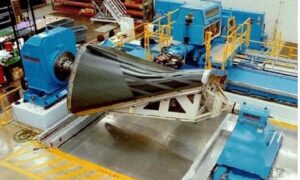In an era where technology influences virtually every aspect of our lives, it’s no surprise that the field of project management is undergoing a significant digital transformation. Innovations in tech are changing how projects are initiated, planned, executed, monitored, and closed, reshaping project management in unimaginable ways. Here are five revolutionary technologies that are destined to leave an indelible impact on project management.
1. Artificial Intelligence (AI)
Artificial intelligence and machine learning have the potential to automate repetitive tasks, reducing human error and increasing efficiency. AI could predict potential risks, automatically generate progress reports, and even suggest actions to stay on track. AI can provide valuable insights from historical project data, helping project managers make better decisions. For instance, tools like the PM Milestone Project Management Templates leverage years of project management experience, offering tried and tested documents that cover all aspects of project lifecycle.
2. Augmented Reality (AR)
Augmented reality has the capacity to provide a virtual perspective of a project, bringing designs to life and enhancing collaboration. It can be used for virtual walkthroughs of construction sites or product demonstrations, saving time and minimizing the need for physical presence.
3. Internet of Things (IoT)
IoT technology allows different devices to communicate with each other over the internet. In project management, IoT can facilitate real-time tracking of resources, improved data collection, and automated status updates, making project processes more efficient and transparent.
4. Blockchain
Blockchain technology, known for powering cryptocurrencies, can enhance security and transparency in project management. It can create secure, unchangeable records of all transactions and interactions, building trust among stakeholders.
5. Virtual Reality (VR)
Just like AR, VR can create immersive experiences for project teams. It can be used for virtual meetings and collaborations, especially for remote teams. Additionally, VR can also be employed for project demonstrations and presentations, providing a comprehensive understanding of project goals and objectives.
Each of these technologies holds tremendous promise for the future of project management. However, it’s important to remember that successful implementation depends not just on the technology itself, but also on how well it’s integrated with the existing project management systems and processes.
As project managers adapt to these emerging technologies, they will need to develop new skills and a keen understanding of the digital tools at their disposal. For a deeper look into how technological innovations are transforming other industries, check out this article on “5 Cutting-Edge Innovations in Military Training That Are Changing the Game“.
In conclusion, the future of project management is bound to be exciting, with these revolutionary technologies promising to redefine the way we manage projects. It’s an exciting time to be a part of this dynamic field, and we can’t wait to see how these technologies shape project management in the years to come.
Navigating the Adoption Challenge
While the advantages of these advanced technologies are indisputable, the transition isn’t devoid of challenges. It’s essential for organizations to approach this digital transformation thoughtfully. Many project managers might be hesitant to integrate these new technologies due to their perceived complexity or concerns about security. Ensuring adequate training and education about these technologies can alleviate these fears. Similarly, choosing the right time to implement the changes, rather than rushing into them, can make the transition smoother.
Emphasizing the Human Element
Despite the rise of these powerful technologies, the role of the project manager remains critical. Technology can streamline processes, provide valuable insights, and facilitate better communication. Still, it cannot replace the human touch that’s essential for understanding project nuances, managing team dynamics, and providing effective leadership. Even as we embrace these futuristic technologies, it’s crucial to continue fostering core project management skills such as communication, critical thinking, and leadership.
Preparing for the Future
The rapid advancement of technology has brought us to an inflection point in project management. It’s a time of exciting possibilities but also of uncertainties. To successfully navigate this new landscape, project managers will need to be agile and open-minded, ready to embrace change. They will need to continually update their skills, staying abreast of the latest technologies and understanding how they can be leveraged to enhance project outcomes. Those who are prepared to ride the wave of this digital transformation will be well-placed to lead the projects of the future.



































